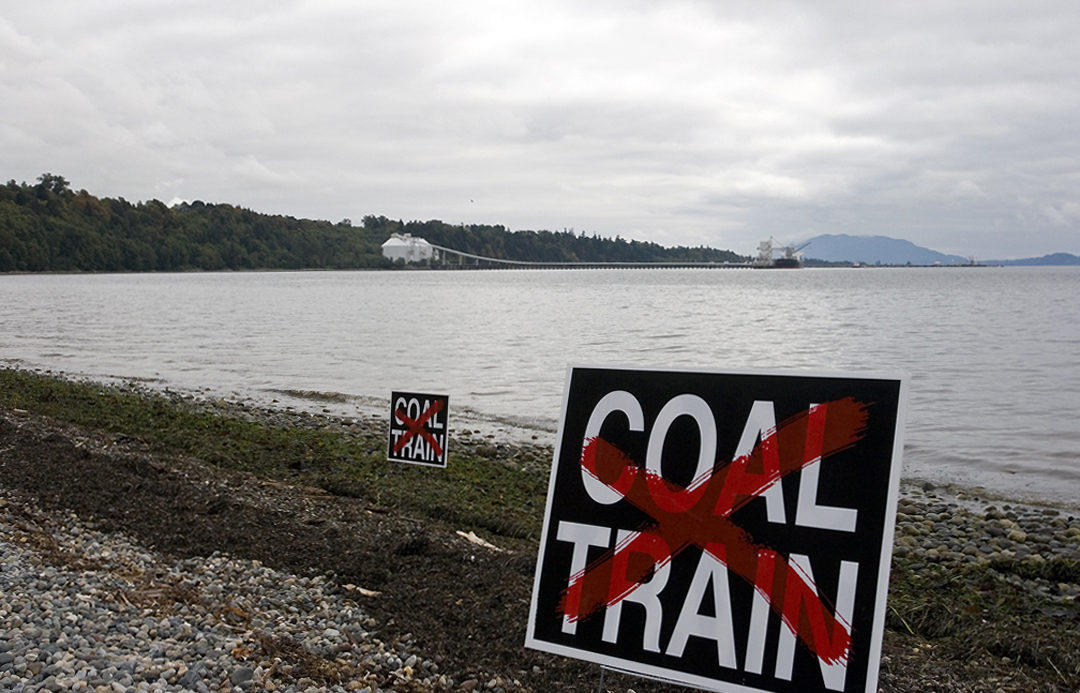Lighthouse looks to use NAFTA talks to greenlight Millennium coal terminal
TDN | 26 June 2018
Lighthouse looks to use NAFTA talks to greenlight Millennium coal terminal
by Zack Hale
Millennium Bulk Terminals’ parent company is ramping up lobbying spending related to trade talks with Canada and Mexico as part of a bold effort to get its blocked coal terminal in Longview approved.
Lighthouse Resources Inc. spent $100,000 on “issues related to the North American Free Trade Agreement (NAFTA)” in the first quarter of 2018, according to disclosure documents filed with the U.S. Senate.
The Utah-based company has already spent 77 percent more on lobbying this year than it did in all of 2017. Almost all of the money went to Venable LLP, a Washington, D.C.,-based law firm with expertise on international trade agreements.
The spike in expenditures comes as Lighthouse continues to press its case that state regulators are interfering with foreign and interstate commerce by denying permits for Millennium’s $680 million proposed export facility.
“It’s not unusual for trade agreements to address trade issues relative to various industries,” Michael Klein, vice president of legal and business development for Lighthouse, said in a phone interview last Thursday.
NAFTA, signed in 1994, removed trade barriers between the United States, Canada and Mexico. Negotiators in the Trump administration are currently working to update the far-reaching agreement, which domestic labor unions have blamed for a loss of U.S. manufacturing jobs.
Lighthouse is asking NAFTA negotiators to take a broad look at permitting reform, Klein said. The idea is for a renegotiated agreement to include provisions that could allow the Millennium project to bypass a series of recent permit denials.
“We’re trying to make others aware of the situation that we’re facing with the permitting of our project in Washington state,” Klein said.
Lighthouse is also suing Washington Gov. Jay Inslee in federal court, arguing his administration has violated the Commerce Clause in the U.S. Constitution by effectively vetoing coal exports from its mines in Montana and Wyoming.
Inslee’s administration has maintained that permits for the project were appropriately denied based on nine different significant environmental impacts, including the harmful effects of increased rail and vessel traffic.
Environmental groups have also cried foul at Lighthouse’s NAFTA strategy.
“Washington state went through a thorough review of this proposed project and determined that the short-term benefits weren’t worth the permanent, long-term risk,” Regna Merritt, co-director of the Power Past Coal coalition, said in a statement last week. “It’s outrageous for the coal industry to use the chaos of Trump’s looming trade war to do an end-run around Washington state’s environmental and public health protections.”
Klein said that Lighthouse is not directly involved in the ongoing trade talks.
“We’re not sitting in on negotiations,” he said. “But we would hope that (NAFTA) would bring remedy to us so that the federal government’s policies allowing for energy exports in support of our trade allies are realized.”
Lighthouse is already under contract to deliver coal shipments to Japan and South Korea, according to its legal complaint. Both countries are projected to increase coal imports in coming years as they shift away from nuclear power.
Lighthouse has also noted in court documents that one of the Trump administration’s top energy initiatives is to revive the fading American coal industry.
Meanwhile, three Republican U.S. senators sent a letter to President Donald Trump in March urging the administration to include a “competitiveness” chapter in a new NAFTA agreement to address permitting.
A new deal should “establish a streamlined, coordinated permitting system that expedites infrastructure and manufacturing projects, doesn’t keep companies in endless limbo awaiting politicized determinations, and unleashes the exports of manufactured goods, food and agricultural products, and natural resources,” they wrote.
The letter was signed by U.S. Sens. Ted Cruz, R-Texas, Steve Daines, R-Mont., and Cory Gardner, R-Colo.
However, it’s unclear whether the Trump administration will convince Canada and Mexico to sign a new trade deal after imposing steel and aluminum tariffs on the two countries last month.
“I’m encouraged and optimistic, but I’m also realistic,” Klein said. “It’s a political process, and we don’t control it.”






